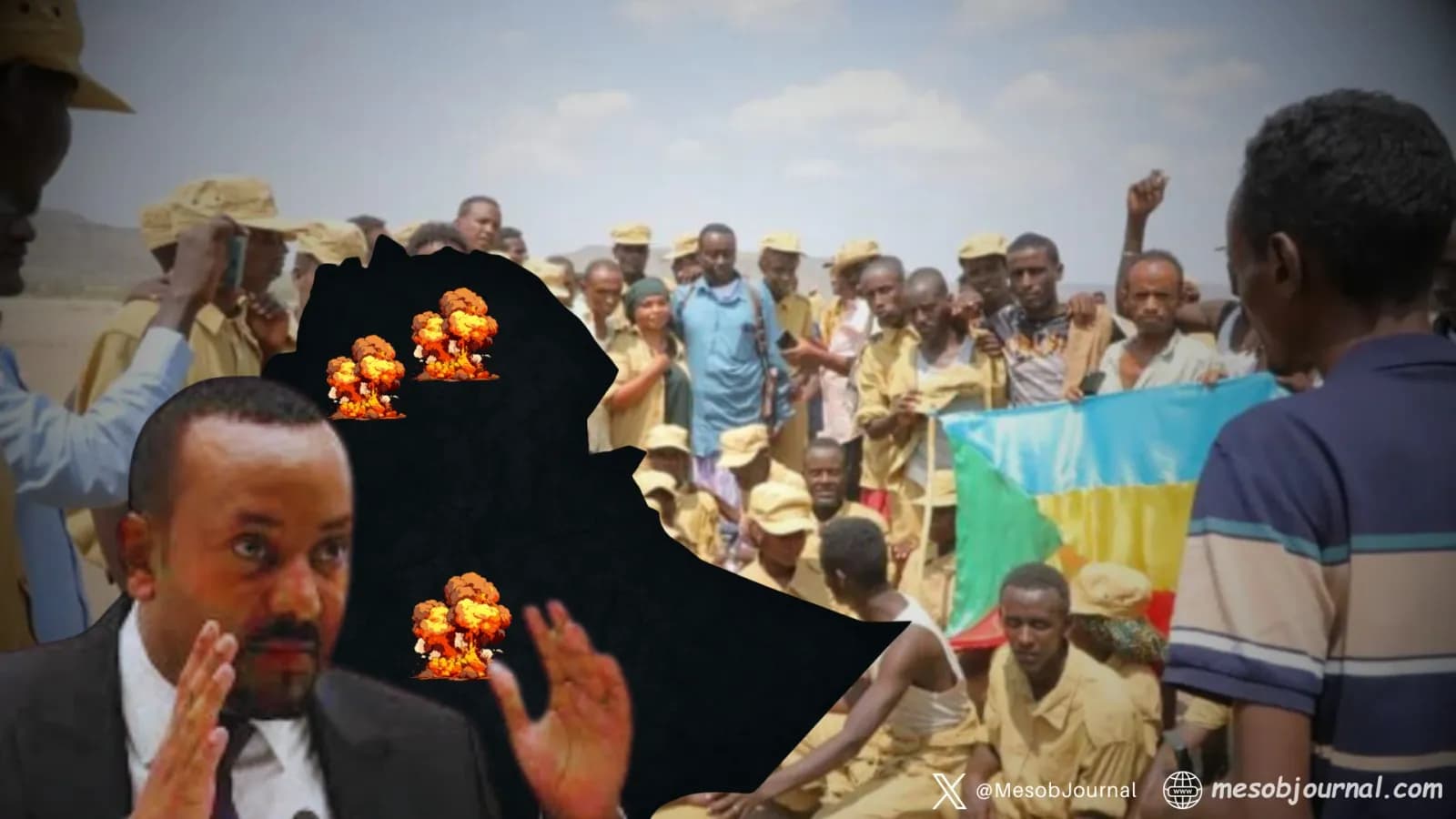The Afar Card: Ethiopia’s Proxy War Against Eritrea

As we recall, for the second time in just two weeks, Ethiopia has gone before the United Nations to accuse Eritrea of “supporting armed groups” inside its territory.
No evidence. No coordinates. No captured fighters. Just a letter — carefully timed, theatrically phrased — and quietly leaked to sympathetic outlets.
Yet, at that same moment, an Ethiopian-based armed faction called the Red Sea Afar Democratic Organisation (RSADO) issued a militant communiqué from Semera, inside Ethiopia, vowing to intensify attacks against Eritrea and announcing the “graduation of new fighters.”
The hypocrisy couldn’t be starker.
A Proxy in Plain Sight
RSADO isn’t hiding in the shadows. Its statements circulate openly on social media. Photos show uniformed men drilling under the Ethiopian sun, their commanders speaking of “liberating the Afar coast.”
They are not rogue actors; they are armed, trained, and sheltered by the Ethiopian government itself. Addis Ababa knows exactly who they are and what they do — because it’s part of a deliberate strategy.
RSADO has long served as Abiy Ahmed’s pressure valve: a controllable proxy used to destabilize Eritrea’s southern coast and remind Asmara that Ethiopia still has levers to pull whenever its “access-to-sea” rhetoric needs to breathe.
The Letter Without Proof
In early October, Ethiopia sent a letter to UN Secretary-General António Guterres claiming Eritrea was “mobilising” Ethiopian rebels. No independent monitor — UN, AU, or satellite analyst — has verified a single instance.
The letter offered zero verifiable evidence: no arms trails, no intercepted communications, not even an alleged incursion.
This is classic diplomatic theatre — accuse before being accused. It’s a move straight out of the Cold War playbook: project your own policy outward to mask the operation already unfolding in your backyard.
Eritrea’s Measured Posture
Asmara hasn’t taken the bait. No retaliatory threats, no counter-letters. Just quiet consistency: Eritrea neither funds nor harbors any Ethiopian armed group. It doesn’t need to — its entire defense doctrine rests on non-interference and self-reliance.
For years, Eritrea has absorbed provocations — drone overflights, border militarization, coordinated disinformation campaigns, and the crescendo of Abiy Ahmed’s “access to the sea” invasion rhetoric — without resorting to the kind of theatrical diplomacy Addis Ababa now practices.
The UN’s Selective Blindness
Where is the UN’s outrage when armed groups broadcast their “graduation ceremonies” from Ethiopian soil? Where are the resolutions when RSADO commanders boast about “cross-border operations”?
Silence. Not because Ethiopia is seen as a “partner of peace”, but because the system still clings to its old narrative. Even as Abiy Ahmed drifts from one crisis to another, the international apparatus hesitates to update its lens. Eritrea remains the convenient suspect; Ethiopia, the familiar client state.
But that script is wearing thin. The Horn of Africa’s watchers — the real ones — know that Eritrea has kept its borders intact and its sovereignty uncompromised, while Ethiopia oscillates between client states and sponsors.
The Real Game: Red Sea Leverage
Ethiopia’s flirtation with Afar militias isn’t about local grievances; it’s about the sea.
By stirring instability in Eritrea’s coastal region, Addis Ababa tests narratives — hoping to soften regional opinion for its old dream: a piece of the Red Sea under the guise of “economic necessity.”
The Afar card is a smokescreen — a low-budget proxy war disguised as ethnic solidarity.
The Verdict
No, there’s no evidence Eritrea is arming anyone in Ethiopia.
Yes, there’s overwhelming evidence Ethiopia is harboring and enabling armed groups targeting Eritrea.
And until the international community stops looking away, the same actors who claim to want “regional stability” will keep underwriting the very instability they pretend to fear.
Eritrea’s restraint shouldn’t be mistaken for weakness. It’s discipline — the same discipline that won its independence “alone against the mighty,” and the same discipline that now defends its peace amid a storm of manufactured crises.
Related stories

A Brief Understanding of South Sudan: Not a Forgotten Conflict but a Neglected One
South Sudan, the world's youngest nation, is teetering on the brink of a devastating return to full-scale war. While international attention is often diverted, the country is experiencing a severe political, humanitarian, and security crisis, fuelled by a collapsing peace deal, v

Isaias Afwerki on Abiy Ahmed: War Rhetoric, Optics, and a Hollow State
When President Isaias Afwerki was asked about Ethiopia’s “Two Waters” rhetoric and escalating war language on January 12, 2026, his response was unusually curt. The question, he said, should not even have been asked. That dismissal wasn’t evasion. It was diagnosis. Afwerki redu

Abiy Ahmed’s Strategic Isolation Is Now in Writing
What Addis Ababa has spent two years denying is now staring it in the face—on White House letterhead. The January 16 letter from Donald Trump to Abdel Fattah el-Sisi isn’t just about mediation. It’s a signal. Clear, deliberate, and consequential. Washington is aligning itself

Israeli Recognition of Somaliland
A Regional Security Threat and Potential for Destabilisation of the Horn of Africa, the Red Sea and the Gulf of Aden Regions and Redrawing the Map of the Horn of Africa On December 26, 2025, the State of Israel announced its formal recognition of the Republic of Somaliland as an

